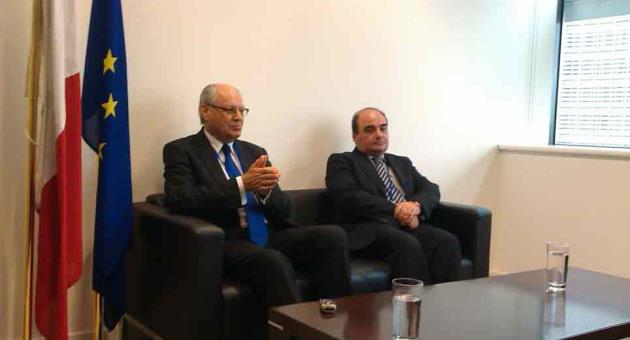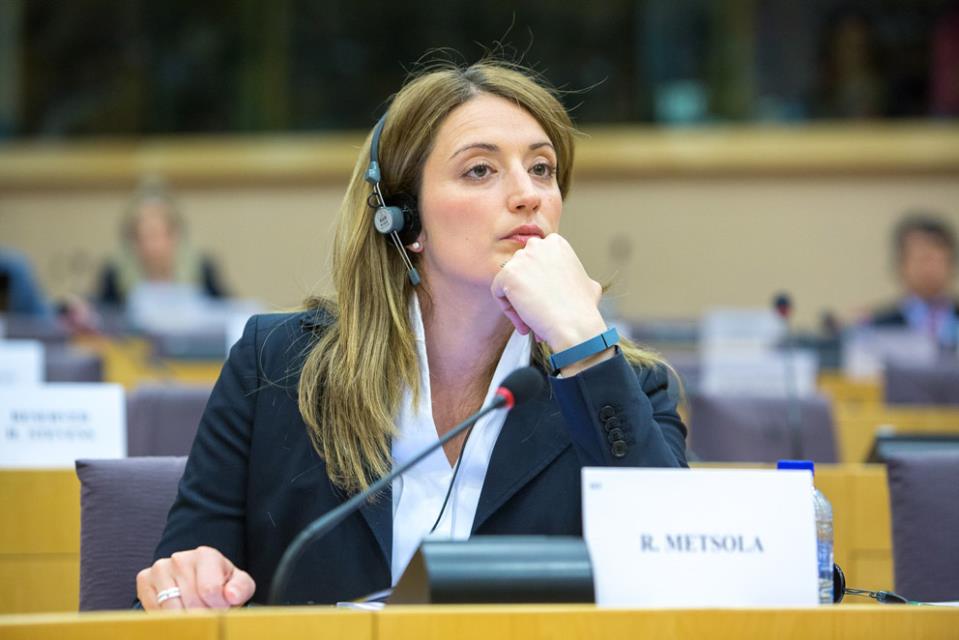Finance Minister Edward Scicluna was asked whether or not it was worth giving Greece more money given the current government's reluctance to institute reform. In response, he argued that continuing to fund Greece would be a political decision which both the Ministers for Finance as well as the Prime Ministers have to carry. "This is the reason we need to speak to each other and they would need to answer this question"
"Is it throwing good money after bad money? Keep in mind that there is such a high risk of political cost. Would you want the Euro to be tarnished? The whole project could be fatally damaged and the problem is that the Greeks know this. It is the moral hazard, where one side knows that if agreement is not found both will suffer". He stressed that it is a very hard decision for the Eurozone.
Finance Minister Edward Scicluna met with members of the press this afternoon following the Eurogroup of Finance Ministers meeting.
He said the way the Greek situation is evolving, small steps are being made, with sometimes two steps being taken forward and one back. We are in for a game of snakes and ladders.
He called the fact that Greece brought forward a proposal in the right direction is a step forward, however the "setback is that we haven't seen it and we don't even have the evaluation".
"The agreement is that the institutions (International Monetary Fund, the European Central Bank and the European Commission) see the proposals and evaluate them. The proposals came in late and they did not manage to evaluate it. We then met without the institutional evaluations".
A Eurogroup meeting of the Finance Ministers took under an hour to conclude. No deal was found according to Finland's Finance Minister Alexander Stubbs, who Tweeted that institutions will assess proposals.

He did not subscribe to the idea that the meeting was pointless, however admitted that expectations were high. We have planned postponed to Thursday and the Eurogroup will meet and be able to give advice to heads of state. He did however say that he is not sure if this meeting will occur.
The meeting later on today with Heads of State will be similar to the one the Finance Ministers just had, he explained. "They will hear what has been done up until now and why we didn't have the evaluations on the table". One version arrived at midnight, and another one arrived in the morning stating that the first one was not the right one.
The Minister mentioned that during the Eurogroup meeting, the Ministers were briefed on what the proposals were, stating that they were more fiscal reforms than structural reforms. "They had some proposals on pensions where the take home pensions would be lower however the pensions they would not receive would be saved for the future". Another example he gave regards an increase in tax for companies. "These however must be quantified. If you increase company tax and companies make less revenue, then you would end up worse than before".

Minister Scicluna explained that the institutions have the expertise to evaluate these proposals.
He explained that the document presented this morning is more convincing that what the Ministers have seen before, "However we are not sure if we have reached a final agreement".
He said that this will not be the end of the story, even if the €7bn is given as the last tranche of the bailout programme, "as so much has happened since February that the situation has deteriorated. Now a new gap has been seen where Greece would need even more funding before the end of the year".
The Minister explained that the IMF has dealt with similair crisis since the second world war and has always dealt with them.

Need for agreement ever-more urgent - Metsola
Commenting on the situation, MEP Roberta Metsola said that "it is becoming ever-more urgent that an agreement is reached between Greece and its lenders. The situation worsens by the day. No one wants to see Greece out of the Eurozone or defaulting on its debts. The scenario goes beyond the societal impact on the Greek people and the immediate loss of funds from lenders and but also includes the prospect of long-term instability of the entire Eurozone. I hope that it will not come to that, and that the parties reach an agreement as soon as possible."
"This situation also illustrates the problem with short-term rhetoric used by populist parties as we have seen in Greece. While some of the statements and promises made by the ruling Party in Greece may have helped them secure an election, many are simply unachievable."